Fiction
Nonfiction
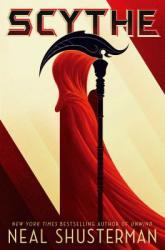
In 2041, what we currently call "the cloud" morphed into a version of AI called "the Thundercloud" that was able to solve all of the world's problems. Death has been basically eliminated - all manner of illness and injury can be cured, and pain is a thing of the past. Thundercloud stops the effects of global warming, and calculates how to best use the world's resources so that no one goes hungry. It's also made government completely irrelevant. However, to stop overpopulation, people called Scythes have to glean, or permanently kill, random members of the population. Scythe follows two teens, Citra and Rowan, as they reluctantly apprentice to become a Scythe.
I think Shusterman has another "Unwind" type of hit on his hands. As the book develops, the seemingly Utopian society gets darker and darker and more dystopian - but really only because of the gleaning. The Scythes have a rich history, and it was interesting to learn about them and their different approaches to gleaning. The book is absolutely at its best when examining humanity and the moral obligations and quandaries that come along with being a scythe - I ended up reading the occasional sentence out loud to my partner, which is something to which I rarely subject him. The ethical implications of gleaning are pretty huge, and the examination of killing and its purpose are what really makes the book a fun read. Also, no surprises here, Shusterman, a National Book Award winner, can WRITE.
I did feel that the book had some premise issues. As the book explains it, your chances of being gleaned, or even knowing someone who has been gleaned, are pretty rare. So why is gleaning even necessary? The book addresses this, but the answer was not satisfactory. I can also easily think of solutions to this problem that don't involve random killing. For example, why not impose some sort of birth limit (people have dozens of children in this version of the future)? Or maybe only those that have children are eligible for gleaning? Or maybe you only get "9 lives". The tenth time you die, it's for real. There wouldn't have been a book without the gleaning, but the book also never managed to convince me that gleaning was a thing that actually needed to happen. I also found it terribly convenient/nonsensical that the Scythes were the only group of people that operated outside of Thundercloud. Like, why? Thundercloud literally solved ALL of humanity's/the earth's problems, but this, life and death, one of the arguably most important problems, we're going to leave up to humans? Mmmmmmmmmmk. Oh, and then Citra and Rowan are eventually pitted against each other, and the rationale as to why makes absolutely no sense. Especially after a certain event transpires, and they STILL are in a fight to the death. It doesn't seem consistent with the rest of the world-building; it felt like a contrived (and unsuccessful) plot device.
Premise problems aside, I really did enjoy the book. If you like near future books, dystopians or ethics, it's definitely worth a read. 3.5 stars.
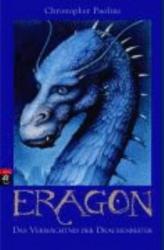
Eragon is a small farm boy living in a small corner of the vast country of Alagaesia. His family having little wealth, Eragon roams the woods in search of anything worth selling, and one day he finds a strange blue stone in the middle of some wreckage. Hoping he can sell it for money, he takes it back to his Uncle Garrow and cousin Roran. Unfortunately, no one buys the stone and Eragon is in possession of the stone for good. However, one night the stone hatches and a baby dragon emerges from the stone. Eragon is frightened at first, but when he pets the dragon the two establish a mental connection, he is now its owner. He names the blue Dragon Saphira and he hides her in the woods, secretly training and raising her. Expectedly, two men come to the town asking of the dragon, so Eragon and Saphira fly away, as if in exile.
Returning to town, Eragon finds that the village is destroyed and his Uncle dead. The town storyteller, named Brom, tells Eragon that the two men were called the Ra’zac and they work for the King of the land, Galbatorix.
Together Brom, Saphira, and Eragon set out to find the Ra’zac and seek revenge, as well as restore peace to Alagaesia. I really enjoyed this book and recommend it to fantasy genre readers, but it’s a good starter for anyone wanting to get into fantasy books.
Grade: 11
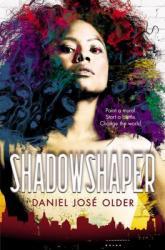
Sierra Santiago is looking forward to the perfect summer. Class is finally out, she has a close group of friends to hang out and party with, and best of all she has the perfect summer gig: painting murals on the walls of old buildings in Brooklyn. But when she starts work on her first mural, she notices something strange going on with the other paintings around her. For one thing, they’re fading way faster than normal, and for another – well, it almost seems like they’re moving. Most confusing of all, when she gets home her grandfather – who hasn’t spoken since his stroke – suddenly wakes up and starts speaking directly to her: she HAS to finish the mural she’s painting, he says, and she needs to do it as fast as possible – before it’s too late. Sierra is thrown. What could a giant picture of a dragon have to with anything? And what does her grandfather mean about time running out? He leaves her with a riddle about a missing woman and more questions than answers.
Most infuriating of all, everyone in her family seems to know exactly what’s going on – but no one will tell her. Her mother even gets angry with her when she tries to ask about the connection between her grandfather and the murals. Something about the subject is just too dangerous to discuss. At first this seems ridiculous to her, but when she goes to a party with a group of her friends suddenly the danger is all too real. A zombie crashes the party and heads straight for her. Sierra is in shock, but Robbie, the quiet, artistic boy from her class that she’s been chatting with, knows what it is – and knows Sierra’s grandfather, too. Sierra escapes, but it’s a close call, and her problems are only just beginning.
Afraid and more confused than ever, she decides to go to the best place for research: the library. While she’s there, she discovers that an anthropologist, the mysterious Dr. Wick, was studying her grandfather and his group of friends just before he had a stroke and everything went wrong. Dr. Wick was researching a power called shadowshaping: the ability to imbue ancestral spirits into their artwork, whether it’s storytelling, music, or, you guessed it, painting murals. Sierra’s starting to put together the pieces, but time is running out – the murals are fading faster than ever and her grandfather’s group of friends, the shadowshapers, are dying one by one. Sure, they’re elderly men, and there’s not a mark on their bodies, but it can’t just be a coincidence, can it? And what about Dr. Wick – he went missing at the same time as her grandfather's a stroke, but is he a victim or a killer? Sierra sets out with Robbie and her group of friends in search of answers. Along the way, she’ll face the walking dead, living paintings, and her family’s tangled past.
I love fantasy, and this had such a unique premise that I had to pick it up, but sadly it fell far short of my expectations. First, the good: the magic system is very original and a lot of fun to read about; the idea of imbuing artwork with ancestral spirits is already interesting, but having murals and chalk drawings come to life to dance and fight and interact with the world made for great reading and some really cool action scenes. In addition, the cast is very diverse in terms of both race and sexuality, and Sierra’s budding relationship with Robbie felt natural rather than forced (and I say that as someone who usually hates romance in YA, but it was very subtle and actually rather sweet). Unfortunately, none of this could save the book from its biggest problem: the pacing. Usually I’m complaining about books that are bloated with filler, but this one had the opposite problem: way too many ideas, not enough space. In just 280 pages, there wasn’t enough room to develop all of the world-building and plot and character development that could have made this book great. As a result, it’s very uneven, and there’s no room for the plot to breathe; the book jumps around a lot from plot point to plot point, and most of the interactions between characters are, quite frankly, bizarre. Older forces awkward conversations that seemed designed to cram in as much background detail as possible before ending abruptly mid-stream so that Sierra can get to the next scene. It’s as if he’s written a check list of everything Sierra needs to do and he’s decided to follow it doggedly regardless of whether or not it flows. Details are introduced but then never followed up on or resolved in any way.
This is compounded by a second problem: the writing just isn’t very good. Part of that is just the book being aimed at a younger audience, and that aspect doesn’t bother me, but another part is awkward transitions between scenes, ham-fisted dialogue, and way too many editing errors for such a short read. These problems together made it honestly quite painful to get through, especially in the rushed beginning chapters when you can see Older trying to get to the main plot as quickly as possible at the expense of everything else. Basically, good idea, poor execution. I would give it 2.5 stars. I still think this has appeal for teens who love urban fantasy or who are looking for something different and original to read, but I wouldn’t call it good by any stretch of the imagination.
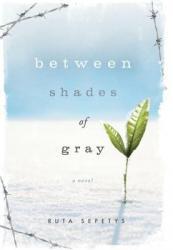
Review: This is the one of best historical fiction books I've ever read. Most historical fictions get their facts wrong, but this book had accurate details and the writer manages to get a good story into it. I absolutely loved the plot and the different kind of character's. The only problem with it is after all that detail throughout the book, at the end it kind of just drops off a cliff. It had a unique ending, I just wish it had more explanation to it.
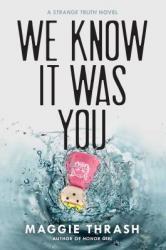
Popular school mascot Brittany Montague jumps off a bridge in her mascot costume. The only two members of the private school's "Mystery Club" are determined to find out why.
This book took me forever to read, mostly because it was kind of awful. I picked it up because I love a good murder mystery and this was billed as Twin Peaks meets Pretty Little Liars. While I'm not super familiar with either property, I figured that this meant it would be a dark and weird murder mystery with a touch of scandal and gossip, which, YES PLEASE. I was also pretty drawn in by that AMAZING cover. Kudos to whoever designed that. But the book itself was not so great. I've actually got so many reasons that I didn't like it that I'm going to present them in an enumerated list:
1. The "mystery" such that it is, is actually solved in the first 100 pages, and the book was seriously uninteresting after that.
2. BOTH main characters were freaking terrible, small, boring people.
3. Aside from the MCs, there were five "bad" characters in the book, four of which were people of color (three are Asians - does the author have something against Asians?). There's also a weird sort of anti-Semitic statement. So.
4. Adults are presented as being totally worthless. Something to this effect is actually said multiple times.
5. There is a weird unresolved child porn sex-ring subplot that will seemingly go somewhere in the next book? Somehow this is a series?
6. Our lovely main girl character refers to other lady characters as sluts, because, as mentioned earlier, she is freaking terrible. There is other fun sexist messaging as well. At one point, a coach basically calls women crazy because they get periods. Awesome.
7. Oh yeah, and there is rape. Because of course there is. Our main characters know about it, but do they do anything? No! Because they are terrible. The whole thing is basically shrugged off.
Sigh. This was clearly meant to be satire or a parody or funny or something, but whatever the author was doing, it was not working. Not for me, anyway. 1 star - I did NOT like it.
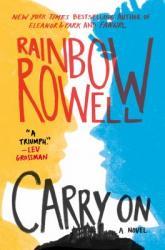
Rainbow Rowell's "Carry On" had me laughing and tearing up and cheering along the protagonists like a crazy person, which -- as I listened to the audiobook in my car -- I'm hoping didn't concern my fellow drivers. This book is not only a clever love letter to the Harry Potter universe/the concept of a "chosen one" narrative, it's one of the cutest teen fiction romances I've read in a long time. I'm going to try not to spoil anything, which is why this review is so very, very short, but... Awww. What a simultaneously goofy and emotional book.
As you may or may not know, "Carry On" takes place in the universe Cath is fangirl-ing over in Rowell's other novel, "Fangirl," but I'd say it works very well as its own independent story. You could read it as a set with "Fangirl," or just read it for its own sake, I imagine both ways are fun and interesting for different reasons.
Categories: Teen Fantasy, Just Plain (?) Fantasy (if you love the Harry Potter books, this is kind of intended for you, I think, regardless of age), GLBTQ Fiction, Humor (?), Romance, Satire/Reinterpretation
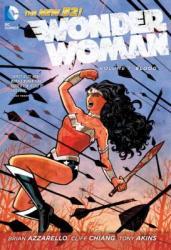
Real Rating: 4.5, rounded up. 6 stars for the Olympians!! Not so many stars for Orion and some of the other creative choices here regarding Diana's origins (that's personal, though -- you may disagree with me.) BUT THE OLYMPIANS, THOUGH.
Brian Azzarello’s work isn’t always my cup of tea, but I have to say I really appreciate a lot about his recent run on Wonder Woman, beginning with “Wonder Woman Volume One: Blood.” A lot of my appreciation for this comic stems from its creative portrayals of the Greek gods – Dionysus can twist the world as a proper god of madness, Apollo is made out of sizzling magma-ish sun stuff, with an obsidian skin hardened over his fiery insides, and Artemis is literally shaped out of fluid moonlight. It’s gorgeous, and a ton of fun. If you love Greek folklore but have always wanted to see Poseidon represented as a barnacle-crusted sea monster, this may be the perfect series for you. Cliff Chiang's art is also very modern and playful, which fits the optimistic tone of the book perfectly. Diana is fierce and loyal, here, a heroine truly worthy of the name “Wonder Woman.” Some of the characters didn't mesh with me so well (>:( I'm looking at you, Orion!!! Augh!!) but despite that I eagerly awaited every volume of this series as I was reading it, so… Consider it hereby recommended for the fun-factor alone. Watch Hera try ice cream for the first time! Watch Artemis run rampant through a tube station! ALL IN DC COMICS CANON! Yes!
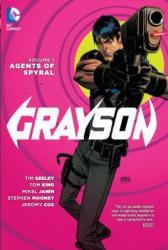
"Grayson Volume One: Agents of Spyral" (by Tom King and Tim Seeley, illustrated by Mikel Janin), gifts readers with a remarkable glimpse into Richard Grayson's head. Formerly Robin, formerly Nightwing but CURRENTLY (as of this comic :P) infiltrating a super-secret web of spies at Batman's behest, Grayson of the acrobatics and charming banter has been tossed into an unfamiliar world of misdirection and the coldest of cold scheming. Here, the agency's morally twisted Hypnos implants allow spies to sneak memories and emotions into unsuspecting human minds, as well as alter their own appearances at will. Here, the former Boy Wonder plays at a dangerous balancing act, pretending to be a loyal to his new director -- a man who always technologically blurs out his own face -- even while living by the codes and ideals he learned from Batman on the rooftops of Gotham. At least in Gotham, the rot and criminal horror of things is plastered right there on the surface, and Richard has a decent enough idea who he can trust... And who he, himself, actually is.
I cannot recommend King and Seeley's Grayson run highly enough, to be honest. It's playful and funny one minute, and then genuinely heart-wrenching the next. It might be in part my affection for dear Mr. Grayson as a character, but... Coming from someone who doesn't usually enjoy spy stories, this series is EXCELLENT. I know it won't be everybody's cup of tea, but if you're interested at all in Robin/Nightwing/the guy who can be both sometimes, when it's needed, you might really get into this series.
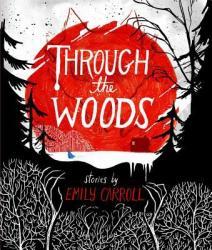
“Through the Woods” by Emily Carroll is a comic book collection of whimsically morbid fairy-tales, each mostly self-contained but serving what I would call an important, human theme: the uncanny waits, and surrounds, especially where you wouldn’t expect it. I love the stark yet evocative art throughout this book, and some of the stories did manage to surprise me. I personally love testaments to the monsters under our beds, particularly those intended for adults, and if you do, too, you may carry something interesting away from this collection. At any rate, the art is gorgeous, feeling “classic” even as it’s so unique.
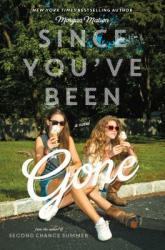
Review: A friend of mine recommended this book to me and she is a big reader so I thought it would be good. Boy was I wrong. Right from the start this book was very slow. It went into immense detail and showed the main character's every thought. Some people may like this, but I though it made the book boring. About halfway through the story started to pick up a little.
I was actually interested in finding out where the best friend had gone, with was the only reason I kept reading it. The whole book revolved around finding the main character's(Emily) best friend. Emily went on a spectacular goose chase looking for her friend and I was expecting just as a spectacular ending to it. But alas, the best friends return was as boring as it gets. I would have given this book a higher rating if it had a better ending. Overall I did not love this book and I wouldn't recommend it.

Writer Scott Snyder and artist Greg Capullo are each AMAZING in DC's just-ended Batman run, starting with "Batman Volume One: The Court of Owls." Seriously, amazing. These books are morbid and playful, working with Batman's psyche and the twisted fairy-tale that is Gotham in a way I think works really, really well. Bruce Wayne feels fully-realized and complicated, as a character, and a great many of the Bat Family get a chance to shine. I personally love Snyder's take on Batman's ensemble of villains, from the Joker (don't worry, he'll show up soon) to the infamous Crazy Quilt (yes, I'm serious.) The "Court of Owls" introduced in this first volume adds yet another layer of rot to this already twisted city, wonderfully developing both the Wayne family history and Gotham as a symbol. I'll leave you with a nursery rhyme repeated throughout the Court of Owls arc, to give you a feel for what sort of story is waiting for you here: "Beware the Court of Owls, that watches all the time, Ruling Gotham from a shadowed perch, behind granite and lime. They watch you at your hearth, they watch you in your bed. Speak not a whispered word of them, or they'll send the Talon for your head." Come on! If that isn't a recipe for fun Batman shenanigans, I don't know what is. :)
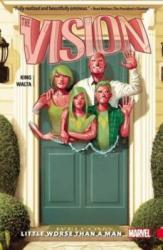
Writer Tom King and illustrator Gabriel Hernandez Walta come together to make something really unique and thought-provoking in "The Vision Volume One: Little Worse than a Man." Here, Vision of the Avengers is trying to make a human family for himself, tucked into an unsuspecting suburb in Virginia. He used Wanda Maximoff's brainwaves to build himself a wife (because THAT can't possibly go badly, right?) and has combined their code to form two children, Vin and Viv, who will be learning what it is to be an artificial life even while having to attend public school. Despite this potentially sitcom-esque set up, the Vision family presents readers with a very dark, pensive future indeed, full of melancholic narration that borders on poetry. This series is about identity, and good intentions gone horribly awry, and what it is to be human... More, what it is to crave humanity from the outside, crave it so desperately that you will do monstrous things for its sake. (I know that theme might feel a tad overdone, given how often it appears in stories about robots, but I think this comic handles it in a refreshing way. :D)
Anyhow, some of my friends who don't even like comic books waited eagerly for the monthlies on this series as it was coming out... It's definitely atmospheric, and stirring, and sad, though it also features a cheerful robotic puppy and some tongue in cheek dark humor. It's not a HAPPY comic, but it's a valuable one.
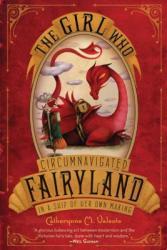
I've yet to read something by Catherynne M. Valente that isn't absolutely gorgeous -- admittedly I may be a little bit biased, as I definitely think folkloric stories are the best, and folkloric stories with lovely playful twists are the BEST best... But when it comes to evocative and clever prose, as far as I'm concerned Valente is on a level all her own. At the moment, I happen to be reading her "Fairyland" series, and so... Behold, the first book -- "The Girl who Circumnavigated Fairyland in a Ship of her Own Making!" It's just as whimsical as it sounds.
So there's this little girl named September, living in a lonely house and washing a bunch of lonely teacups all the time and feeling very trapped. A quirky and talkative Green Wind -- apparently a defiant and spirited sort of wind -- riding a leopard shows up to spirit her away to Fairyland if she likes. This book is very much like "Alice's Adventures in Wonderland" for the modern age: September has loads more authority over herself and her destiny, for one, and she grows dramatically as a human being over the course of the series. Fairyland helps that along of course, despite being a wild and alien place, complete with folkloric and/or mythological figures both eternal and re-imagined, petulant tyrants with very impressive hats, and interesting twists and turns aplenty that I can say I definitely didn't see coming. Valente's world is simultaneously familiar and wonderfully fresh, like she's composed words to go along to the tune of a well-beloved song, shifting its meaning in unexpected ways while still keeping true to the soul of something timeless.

Oh my goodness, Apollo, you strange and beautiful basket case. I was laughing all through this book, marking pages to shove at my friends... You know the drill. The Greek-mythology-centric Percy Jackson series as a whole helped me through some dark times when I was younger, and this first book of Rick Riordan's new "Trials of Apollo" series is delightful, just as I remember "The Lightning Thief" to have been back when I really, really needed it. (It's only missing Mr. D -- I've always especially liked Mr. D. Maybe he'll show up in the next one?)
Anyway. You know how in Greek folklore, Apollo gets stripped of his powers sometimes when he gets his king/dad, Zeus, angry? That's happened again in this series, only now it's all happening in modern day New York... Where the rules to everything are way different than what Apollo's used to... Annnnd he's not used to acne or helplessness, either, both of which he has to deal with as an awkward teen apparently named "Lester." It's the sparkly god of the sun/music/so many things's turn to go on actual quests again instead of waving demigods off on them... And he's very, very sad about it.
Some familiar faces from the Percy Jackson series have appeared so far in "The Hidden Oracle," but I would say it's definitely its own series with unique sources of pathos. Something I always loved about the Percy Jackson books is their empathy, the way people can redeem themselves, the way characters can still be heroic despite/because of their flaws... And that is STILL HERE, operating now through the protagonist, given the centuries worth of mistakes a now-human Apollo has to grapple with. I definitely liked "Magnus Chase and the Gods of Asgard: The Sword of Summer" -- the Riordan book that came out a bit before this one -- but it didn't click with me in nearly the same way as Apollo's shenanigans. "The Hidden Oracle" felt like a fresh and self-aware remix of old ideas and settings from Percy Jackson, all told through a recently fallen god's wonderful, WONDERFUL narration. Yes, if you want something completely different than Percy Jackson this might not be the best place to look. But if you want to see the Percy Jackson universe through refreshingly new and oh-so-Olympus-y eyes, this may be perfect for you!
To sort of sum things up: I think this is a great kids' book, engaging and fast-paced and written with a light and goofy sense of humor, just like those original Percy Jackson books. (Sometimes the humor does get VERY goofy, so go in warned, but other times it's clever and tongue-in-cheek. Funny guy, that Apollo. Versatile.) Beyond that, though, I...a grown adult...am 100% buying the next book for myself just as soon as it comes out. I know that doesn't necessarily mean EVERY mythology-loving adult equipped with a suitably goofy sense of humor would also enjoy this book, but I know for a fact plenty of others have the same plan.
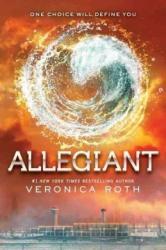
I was hesitant to read this book because of previous reviews I had read about it and I didn't think it was as bad as everyone said it was. It is a great book and very well written, but if you do plan on reading it then don't read the last 50 pages (They contribute next to nothing with the overall story and just cause lots of tears). The story itself is very, very good. Tris and Tobias have to escape the city and go past the fence. Only once they are out there they find that their whole city was just an experiment to try and fix a mistake made hundreds of years ago by people who didn't know any better.
Tris, and the group she came with, have to save the outside world before they can save their previous home. There is a lot of fighting and struggles because the world beyond the fence is vicious and cruel. Tobias is at odds with himself as he finds out secrets in his DNA, secrets he wasn't entirely ready to know.
Reviewer Grade: 8
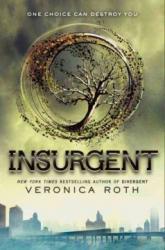
This book is about Tris and Tobias trying to stop Erudite. There's a lot of tension between friends and family as the dauntless splits in half. Traitors side with Erudite and the rest take refuge at Candor headquarters. Jeanine Mathews results to murder as she starts to kill dauntless every two days that go by without a divergent turning themselves in. There is definitely a lot of internal struggles with Tris as she tries to overcome her grief with the death of her parents and Will. Her and Tobias have some conflict too as they try to come to an agreement with how to handle the Erudite situation.
Reviewer Grade: 8
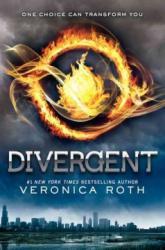
I loved this book! It is way better than the movie. It is about Beatrice Prior, a 16 year old girl. In her world there are 5 factions in which most everyone belongs. She is apart of abnegation, the selfless faction, but doesn't feel that she is selfless enough so she decides to switch to dauntless, the brave faction. The book is about how she has to over come her inner cowardice and pass initiation. If she does not pass then she becomes factionless and will spend the rest of her life homeless and begging for food. The only thing that is holding her back is that Tris is divergent and if your divergent in this society then you are basically as good as dead. She has to keep her secret a secret while also managing to remain in a safe place in initiation. It also has some romance as her instructor, Four, tries to help her become better at fighting. The book has a lot of action and keeps you on the edge of your seat through the whole thing.
Reviewer Grade: 8
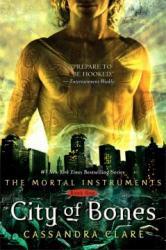
Clary Fray is a completely normal girl, except that she saw three people brutally kill someone. Not only did she witness a vicious killing, but somehow no one else can see it but her. Then suddenly her mother is kidnapped and she is attacked by a demon. Clary gets sucked into a world full of monsters and shadowhunters, an elite group of people tasked with protecting humans. In order to save her mother from Valentine, the man who wants to murder downworlders and innocent children, she must team up with Jace Wayland, a very talented and young shadowhunter. I could absolutely not put this book down!!There was so much action and just enough romance that this book will probably always be one of my favorite books ever! I definitely recommend it to anyone who enjoys fiction.
Reviewer Grade: 8
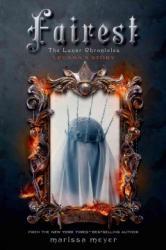
Anyone who has enjoyed The Lunar Chronicles would totally love this book. It definitely changed my perspective on Levana and helped me to understand her personality more when I read Winter, the last book in the series. The book talks about why she wears her glamour all the time and what scarred her face.
It also covers what made her so evil and vicious. Not only that, but it explains what compelled her to attempt to kill her niece, Princess Selene.
This book is a must read with the whole Lunar Chronicles series and helps to understand both sides of the story.
Reviewer Grade: 8
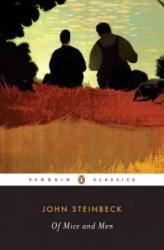
Two men, George and Lennie, wander aimlessly throughout the West Coast of the United States during the Great Depression, looking for any kind of job.
Lennie is a large, strong, migrant worker who, unfortunately, has a mental disability. Whereas George is a skinny, quick-witted man who cares for Lennie. Lennie’s mental disability and his uncontrollable strength causes the two of them to lose every job they get and get driven out of town. George does everything he can to keep Lennie out of trouble, partly because he promised Lennie’s Aunt and partly because he cares for Lennie; and Lennie tries to stay out of trouble, for their hopes of owning their own farms drives both of their motivations. Finally, they are able to find work on a small ranch in Soledad, California and actually make friends with many of the workers. Their dream of accumulating enough money to own a ranch is close, but Lennie’s disability could cause them to lose even this job.
Reviewer Grade: 10





 Ruth Holley Library will be temporarily closed for approximately one week starting Mon., Dec. 2 to complete roof repairs.
Ruth Holley Library will be temporarily closed for approximately one week starting Mon., Dec. 2 to complete roof repairs.